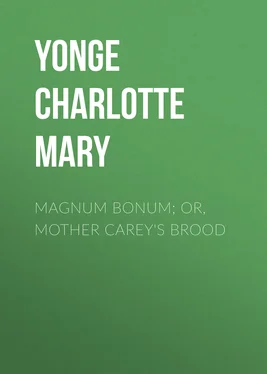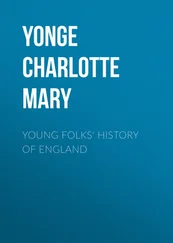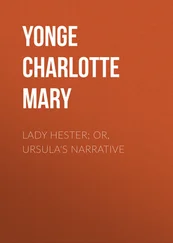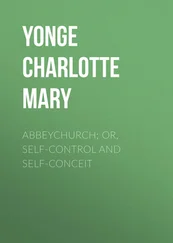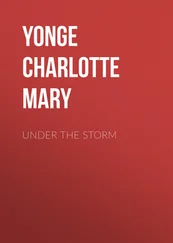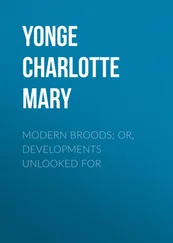Charlotte Yonge - Magnum Bonum; Or, Mother Carey's Brood
Здесь есть возможность читать онлайн «Charlotte Yonge - Magnum Bonum; Or, Mother Carey's Brood» — ознакомительный отрывок электронной книги совершенно бесплатно, а после прочтения отрывка купить полную версию. В некоторых случаях можно слушать аудио, скачать через торрент в формате fb2 и присутствует краткое содержание. Издательство: Иностранный паблик, Жанр: foreign_prose, literature_19, Европейская старинная литература, foreign_antique, на английском языке. Описание произведения, (предисловие) а так же отзывы посетителей доступны на портале библиотеки ЛибКат.
- Название:Magnum Bonum; Or, Mother Carey's Brood
- Автор:
- Издательство:Иностранный паблик
- Жанр:
- Год:неизвестен
- ISBN:нет данных
- Рейтинг книги:5 / 5. Голосов: 1
-
Избранное:Добавить в избранное
- Отзывы:
-
Ваша оценка:
- 100
- 1
- 2
- 3
- 4
- 5
Magnum Bonum; Or, Mother Carey's Brood: краткое содержание, описание и аннотация
Предлагаем к чтению аннотацию, описание, краткое содержание или предисловие (зависит от того, что написал сам автор книги «Magnum Bonum; Or, Mother Carey's Brood»). Если вы не нашли необходимую информацию о книге — напишите в комментариях, мы постараемся отыскать её.
Magnum Bonum; Or, Mother Carey's Brood — читать онлайн ознакомительный отрывок
Ниже представлен текст книги, разбитый по страницам. Система сохранения места последней прочитанной страницы, позволяет с удобством читать онлайн бесплатно книгу «Magnum Bonum; Or, Mother Carey's Brood», без необходимости каждый раз заново искать на чём Вы остановились. Поставьте закладку, и сможете в любой момент перейти на страницу, на которой закончили чтение.
Интервал:
Закладка:
“How nice for the preserves!” observed Bobus.
“They would do just as well to hinder Mother Carey from catching it.”
“No, no, boys; I ought to ‘catch it!’ It was all my fault for not putting the plums away.”
“You won’t tell of us,” growled Robin, between lips that he opened wide enough the next moment to admit one of three surviving plums.
“If I tell her I left them about in the boys’ way, she will arrive at the natural conclusion.”
“Do they call those things magnum bonum?” asked Janet, as the boys drifted away.
“Yes,” said her mother, looking at her rather wonderingly; and adding, as Janet coloured up to the eyes, “My dear, have you any other association with the name?”
Many a time Janet had longed to tell all she knew; now, when so good an opportunity had come, all was choked back by the strange leaden weight of reserve, and shame in that long reserve.
She opened her eyes and stared as stupidly at her mother as Robin could have done, feeling an utter incapacity of making any reply; and Caroline, who had for a moment thought she understood, was baffled, and durst not pursue the subject for fear of betraying her own secret, deciding within herself that Janet might have caught up the word without understanding.
They were interrupted the next minute, and Janet ran away, feeling that she had had an escape, yet wishing she had not.
Caroline did effectually shelter her nephews under her general term “the boys,” and if their mother was not conciliated, their fellow-feeling with her was strengthened, as well as their sense of honour. Nay, Johnny actually spent the next half-holiday in walking three miles and back to his old nurse, whom he beguiled out of a basket of plums—hard, little blue things, as unlike magnum bonums as could well be, but which his aunt received as they were meant, as full compensation; nay, she took the pains to hunt up a recipe, and have them well preserved, in hopes of amazing his mother.
It was indeed one difficulty that the two sisters-in-law had such different notions of the aim and end of economy. The income at Kencroft had not increased with the family, which numbered eight, for there were two little boys in the nursery, and it was only by diligent housewifery that Mrs. Brownlow kept up the somewhat handsome establishment she had started with at her marriage. Caroline felt that she neither could nor would have made herself such a slave to domestic details; yet this was life and duty and interest to Ellen. Where one sister would be unheeding of shabby externals, so that all her children might be free and on an equality, if they did not go beyond her, in all enjoyments, physical, artistic, or intellectual; the other toiled to keep up appearances, kept her children under restraint and in the background, and made all sorts of unseen sacrifices to the supposed duty of always having a handsome dinner for whomsoever the Colonel might bring in, and keeping the horses, carriages, and servants that she thought his due.
But then Ellen had a husband, and, as Caroline sighed to herself, that made all the difference! and she was no Serene Highness, and had no dignity.
The three girls from Kencroft did actually become pupils at the Folly, but the beginnings were not propitious, for, in her new teacher’s eyes, Jessie knew nothing accurately, but needed to have her foundations looked to—to practise scales, draw square boxes, and work the four first rules of arithmetic.
“Simple things,” complained Jessie to her mother, “that I used to do when I was no bigger than Essie, and yet she is always teasing one about how and why! She wanted me to tell why I carried one.”
“Have a little patience for the present, my dear, your papa wants to help her just at present, and after this autumn we will manage for you to have some real good music lessons.”
“But I don’t like wasting time over old easy things made difficult,” sighed Jessie.
“It is very tiresome, my dear; but your papa wishes it, and you see, poor thing, she can’t teach you more than she knows herself; and while you are there, I am sure it is all right with Essie and Ellie.”
“She does not teach them a bit like Miss James,” said Jessie. “She makes their sums into a story, and their spelling lessons too. It is like a game.”
Indeed, Essie and Ellie were so willing to go off to their lessons every morning, that their mother often thought it could not be all right, and that the progress, which they undoubtedly made, must be by some superficial trick; but as their father had so willed it, she submitted to the present arrangement, deciding that “poor Caroline was just able to teach little children.”
The presence of Essie and Ellie much assisted in bringing Babie back to methodical habits; nor was she, in spite of her precocious intelligence, too forward in the actual drill of education to be able to work with her little cousins.
The incongruous elements were the two elder girls, who could by no means study together, since they were at the two opposite ends of the scale; but as Jessie was by no means aggressive, being in fact as sweet and docile a shallow girl as ever lived, things went on peaceably, except when Janet could not conceal her displeasure that Bobus would not share her contempt for Jessie’s intellect.
If she told him that Jessie thought that the Odyssey was about a voyage to Odessa, and was written by Alfred Tennyson, he only declared that anything was better than being a spiteful cat; and when he came in from school, and found his cousin in wild despair over the conversion of 2,861 florins into half-crowns, he stood by, telling her every operation, and leaving her nothing to do but to write down the figures. He was reckless of Janet, who tried to wither them both by her scorn; but Jessie looked up with her honest eyes, saying—
“I wish you hadn’t put it into my head, Janet, for now I must rub it out and do it again, and it won’t be so hard now Bobus has shown me how.”
“No, no, Jessie,” said Bobus; “I wouldn’t be bullied.”
“For shame, Bobus,” said his sister; “how is she to learn anything in that way?”
“And if she doesn’t?” said Bobus.
“That’s a disgrace.”
“A grace,” said provoking Bobus. “She is much nicer as she is, than you will ever be.”
“Don’t talk such nonsense,” said Janet, with an elder sisterly air. “It is not kind to encourage Jessie to think anyone can care for an empty-headed doll.”
“Empty-headed dolls are all the go,” said Bobus. “Never mind, Jessie, a girl’s business is to be pretty and good-humoured, not to stuff herself with Latin and Greek. You should leave that to us poor beggars!”
“Yes, I know, that’s all your envy and jealousy,” retorted Janet.
All the time Jessie stood by, plump, gentle, and pretty, though with a certain cloud of perplexity on her white open brow, and as her aunt returned into the room, she said—
“I think my sum is right now, Aunt Caroline; but Bobus helped me. Must I do it over again?”
“You shall begin with it to-morrow, my dear,” said her aunt; “then I daresay it will go off easily.”
Jessie thanked with an effusion of gratitude which made her prettier than ever, and then was claimed by Bobus to help him in the making of some paper bags that he needed for some of his curiosities.
Janet liked to fancy that it was beauty versus genius that made Jessie the greater favourite. She had not taken into account that she was always too much engrossed with her own concerns to be helpful, while Jessie’s pretty dexterous hands were always at everyone’s service, and without in the least entering into the cause of science, she was invaluable in the museum, whenever her ideas of neatness and symmetry were not in too absolute opposition to the requirements of system.
Читать дальшеИнтервал:
Закладка:
Похожие книги на «Magnum Bonum; Or, Mother Carey's Brood»
Представляем Вашему вниманию похожие книги на «Magnum Bonum; Or, Mother Carey's Brood» списком для выбора. Мы отобрали схожую по названию и смыслу литературу в надежде предоставить читателям больше вариантов отыскать новые, интересные, ещё непрочитанные произведения.
Обсуждение, отзывы о книге «Magnum Bonum; Or, Mother Carey's Brood» и просто собственные мнения читателей. Оставьте ваши комментарии, напишите, что Вы думаете о произведении, его смысле или главных героях. Укажите что конкретно понравилось, а что нет, и почему Вы так считаете.
